code: 3121
type: persian carpets
collection: antique persian carpets
origin: iran
dimensions 282 x 367 cm
9' 3" x 12' 0"
9' 3" x 12' 0"
features: decorativo
€24.590,16
$27,049.18
UE Citizens + Italian Vat Tax (22%)UE Companies Italian Vat Tax Free
Available from:
Morandi Tappeti
Condizione: Antico
In stock! Ordina Ora!
This carpet is in Italy - Castelvetro store
Ships in week
Ships in week
When carpets are historically important and of this quality, I do not interrupt the magic that surrounds whomever is looking at it by making comments that would only mirror my personal relationship with the carpet rather than the observer’s experience. Some useful technical specifications: Senneh knot open to the right, density 490,000 knots per sq m, warp in twisted S-shaped cotton complete...leggi tuttoly depressed, two light blue weft threads one thin and smooth and another tighter one passing through the warp threads.
More info »
category: persian carpets
The Persian carpet is the carpet by definition, the best known and appreciated among the hand-knotted carpets. Generally named after the city or area of knotting. Kirman carpet, Kashan, Tabriz, Isfahan, Serapi, Senneh, Bakhtiari, Saruk, Sultanabad, Mahal, Ferahan, Mishan, Josan, Bidjar, Malayer, Hamadan
collection: antique persian carpets
We define the ancient carpets before the war of 1915/18. They have hand-spun wool dyed with vegetable colors, animals or minerals. In some rare cases have been used, limited to certain colors, the first aniline dyes. Saruk rugs, knotted with vegetable colors until 1930, are included in this group
The Persian carpet is the carpet by definition, the best known and appreciated among the hand-knotted carpets. Generally named after the city or area of knotting. Kirman carpet, Kashan, Tabriz, Isfahan, Serapi, Senneh, Bakhtiari, Saruk, Sultanabad, Mahal, Ferahan, Mishan, Josan, Bidjar, Malayer, Hamadan
collection: antique persian carpets
We define the ancient carpets before the war of 1915/18. They have hand-spun wool dyed with vegetable colors, animals or minerals. In some rare cases have been used, limited to certain colors, the first aniline dyes. Saruk rugs, knotted with vegetable colors until 1930, are included in this group
COMMENTS for SAROUK FERAHAN
Write here your comment »
Preg.mo Dott. Morandi, non mi trattengo dal condividere con lei l ammirazione per quest opera contemplando la quale... silenzio.
Arte, pura. Grazie.
Giulia Sofia - 12-02-2025 | 20:52:22
Giulia Sofia - 12-02-2025 | 20:52:22



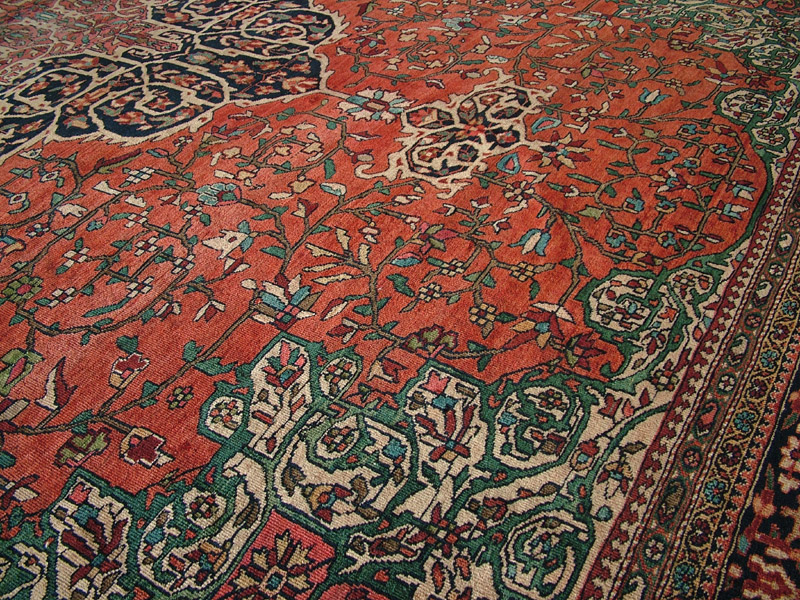
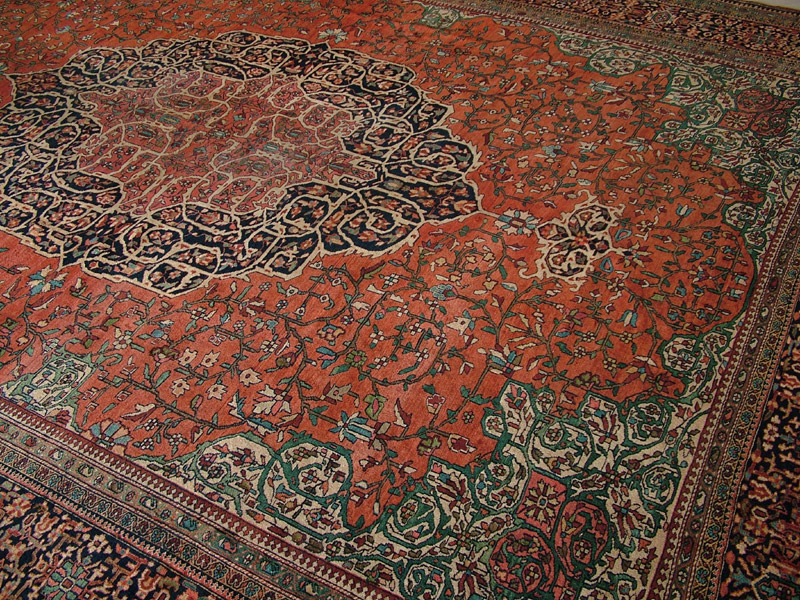
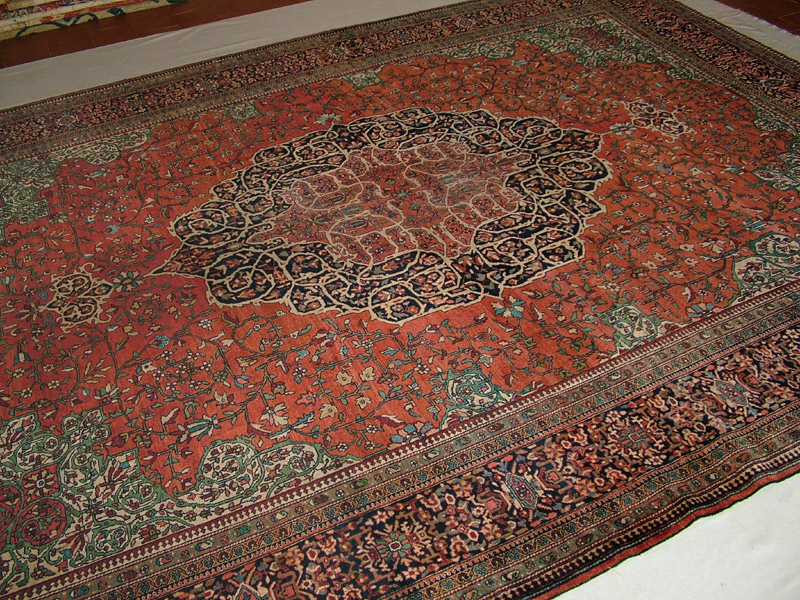
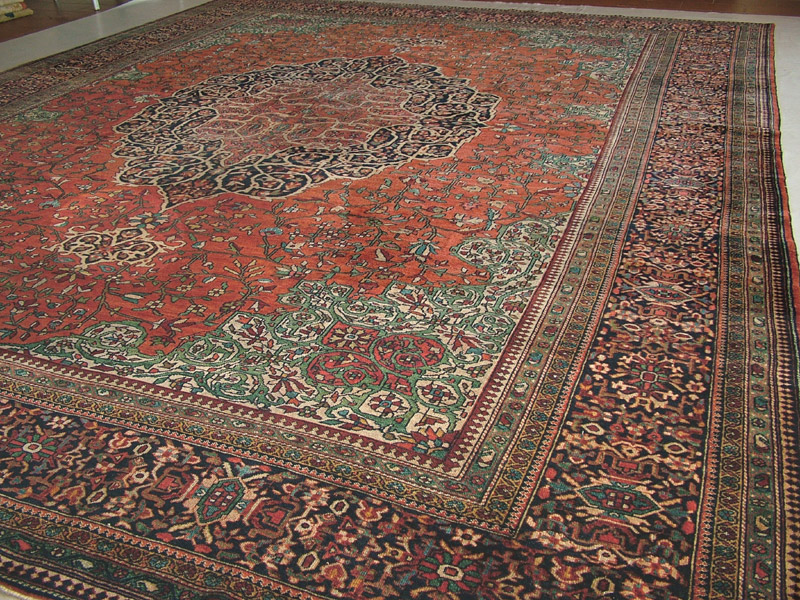
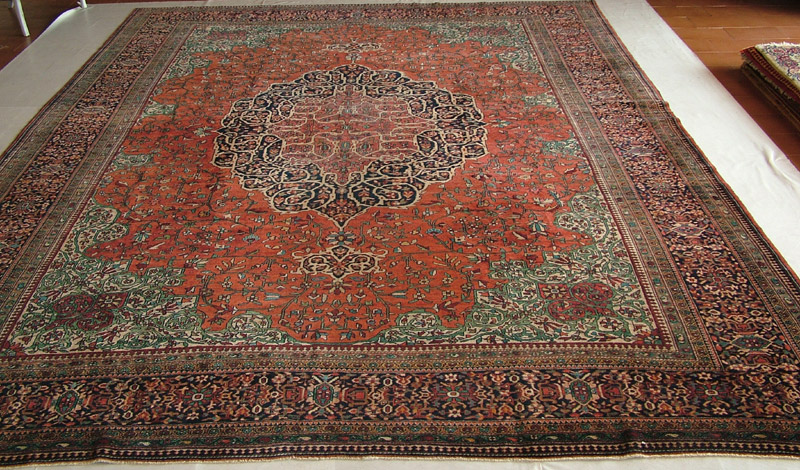
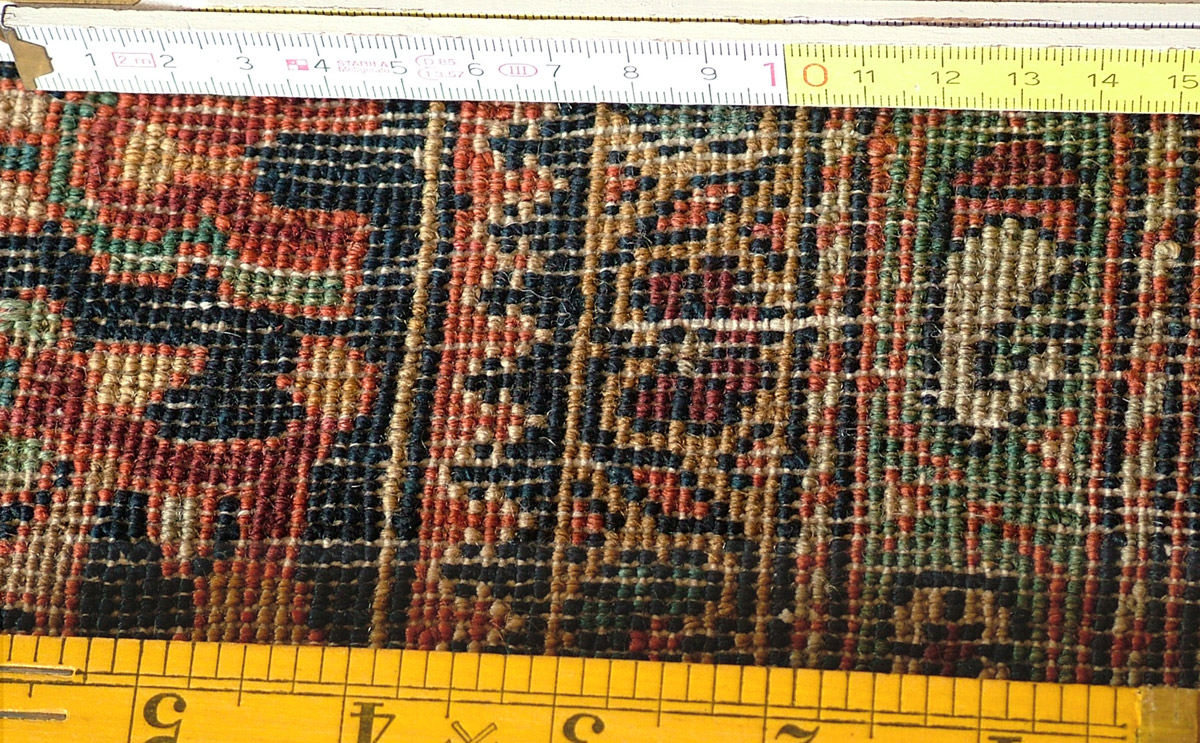
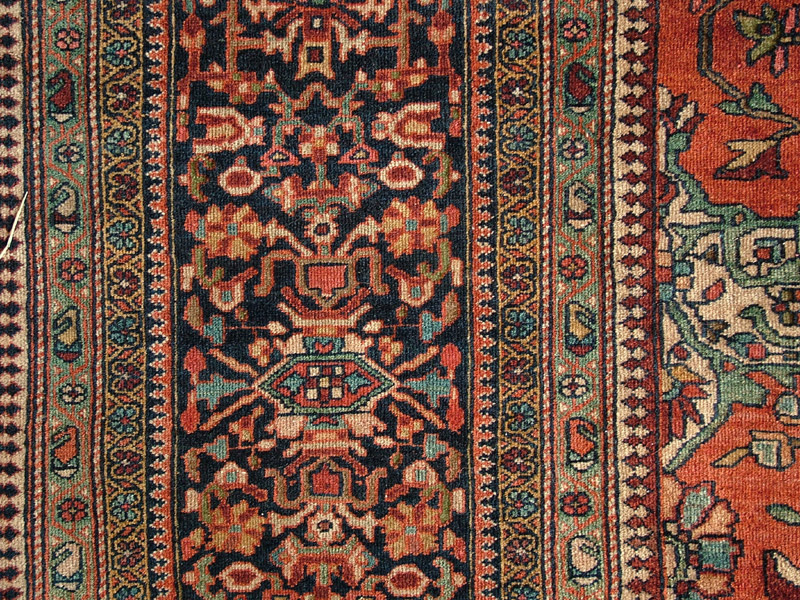
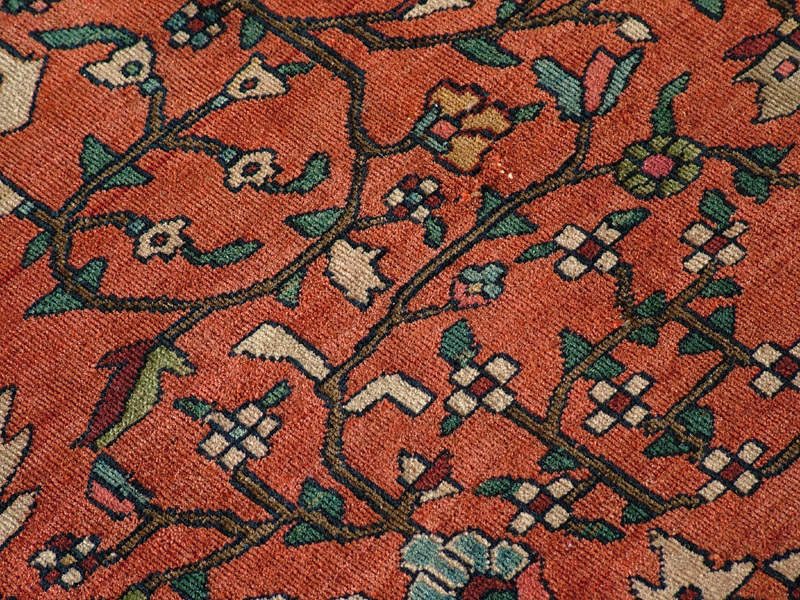
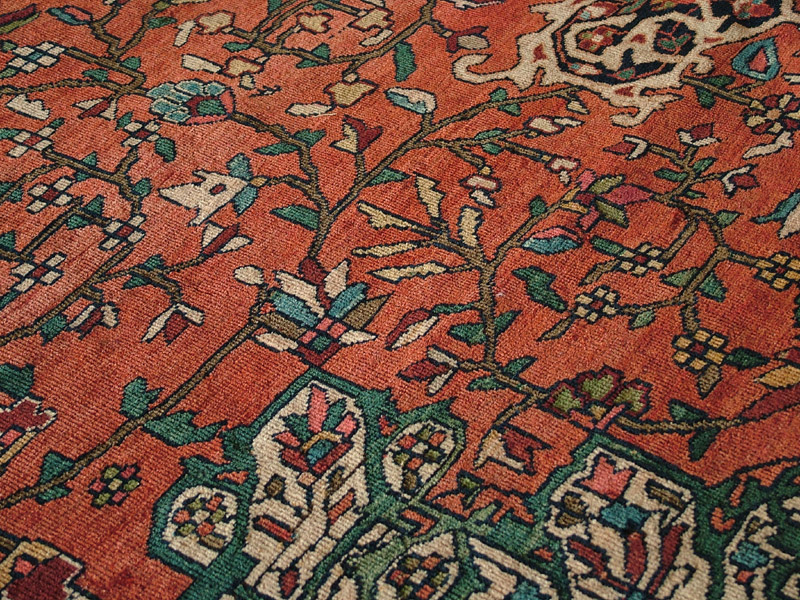




Your comment is awaiting moderation.